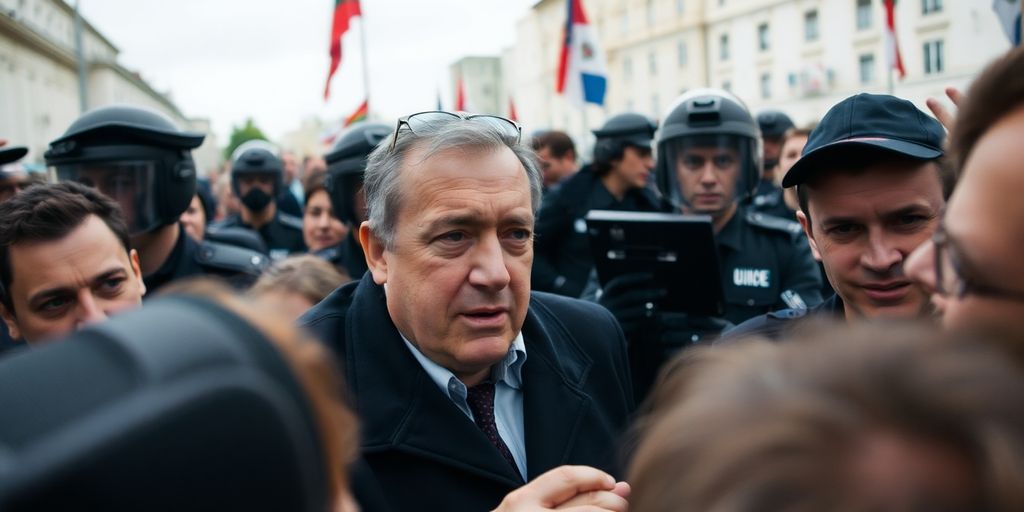Tensions in Bosnia and Herzegovina escalated dramatically on April 23, 2025, when state police attempted to arrest Milorad Dodik, the controversial leader of the Republika Srpska entity. The arrest was thwarted by local police forces loyal to Dodik, highlighting the deepening political crisis in the country.
Key Takeaways
- Milorad Dodik, president of Republika Srpska, faces legal action for anti-constitutional conduct.
- State police (SIPA) attempted to arrest Dodik but were blocked by armed RS police.
- An international arrest warrant was issued, but Interpol declined to act on it.
- The situation reflects ongoing tensions between Dodik’s separatist agenda and the central Bosnian government.
Background of the Crisis
The political landscape in Bosnia has been fraught with tension since the end of the 1990s war, but the current crisis marks one of the most significant challenges to stability in recent years. Dodik has long advocated for the independence of Republika Srpska, a move that has drawn international condemnation and sanctions from the United States and the United Kingdom.
In February 2025, Dodik was sentenced to one year in prison and banned from political office for six years after defying rulings from international peace envoys. This verdict has been described by some as politically motivated, further complicating the already volatile situation.
The Arrest Attempt
On April 23, SIPA agents attempted to execute a court order to arrest Dodik during a meeting in East Sarajevo. However, they were met with resistance from the Republika Srpska police, who threatened to use force to prevent the arrest. Reports indicate that no violence occurred during the standoff, but the incident underscores the growing divide between the central government and the RS authorities.
Dodik later claimed he felt "fine and safe," asserting that state institutions had no authority in Republika Srpska. This defiance is emblematic of his ongoing challenge to the legitimacy of the central government.
International Implications
The failed arrest attempt has drawn attention from international observers, as it highlights the geopolitical tensions in the region. Dodik’s actions have not only strained relations within Bosnia but have also pitted him against Western powers, particularly the U.S. and the EU, while he seeks support from Russia.
In early April, Interpol declined a Bosnian court’s request for a red notice against Dodik, further complicating efforts to hold him accountable. This decision has been interpreted by Dodik and his supporters as validation of their claims that the legal actions against him are politically motivated.
Future Prospects
As the political crisis unfolds, the potential for further instability remains high. The Bosnian government is reportedly considering new charges against those who obstructed the arrest, which could escalate tensions further. Dodik’s continued defiance and the support he receives from Moscow may embolden him to pursue his separatist agenda, raising concerns about the future of Bosnia and Herzegovina as a unified state.
The situation remains fluid, and the international community is closely monitoring developments as Bosnia navigates this precarious political landscape.
Sources
- State-level security agency fails to arrest Bosnian Serb leader Milorad Dodik, Euronews.com.
- Bosnia state police fail in attempted arrest of Serb leader Dodik, Reuters.
- Bosnia Mulls New Charges after Failed Arrest Attempt of Milorad Dodik, Hungarian Conservative.
- Interpol declines Bosnian ‘red notice’ request for Serb leader Dodik, court says, Reuters.
- BIRN Fact-Check: Might Bosnia’s Republika Srpska Get Trump to Lift Sanctions?, Balkan Insight.






